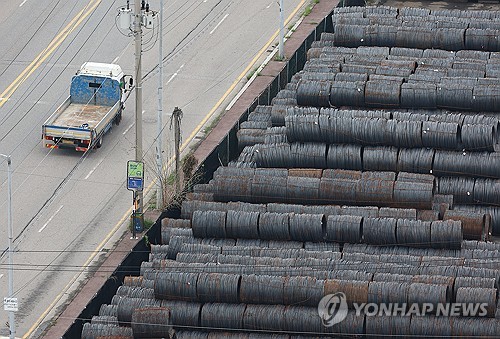
(Seoul=Yonhap Infomax) Da Ye On – The so-called "K-Steel Act," which designates the steel industry as a national strategic sector and provides targeted support, has cleared a key hurdle in South Korea's National Assembly, passing the standing committee stage.
The National Assembly's Trade, Industry, Energy, SMEs and Startups Committee approved the K-Steel Act in a plenary session on the 21st, with bipartisan agreement. This comes just two days after the bill passed the committee's subcommittee for legislative review on the 19th.
The K-Steel Act, jointly proposed in August by 106 lawmakers from both the Democratic Party of Korea and the People Power Party—including co-chairs of the National Assembly Steel Forum, Eo Gi-gu (Democratic Party) and Lee Sang-hwi (People Power Party)—aims to bolster the competitiveness of South Korea's steel sector.
The legislation establishes a "Special Committee for Strengthening Steel Industry Competitiveness," chaired by the President, which will formulate five-year master plans and provide a legal basis for a range of fiscal and tax incentives.
Additionally, the bill designates decarbonization technologies such as hydrogen-based steelmaking as "green steel technologies," specifying subsidies, loans, tax breaks, and production cost support for related R&D and investment.
The K-Steel Act has drawn attention as a rare bipartisan initiative to revive the steel industry, which has been under pressure from high U.S. tariffs and sharp currency fluctuations.
On the same day, the committee also passed the "Special Act on Strengthening Competitiveness and Support for the Petrochemical Industry" (Petrochemical Support Act) with bipartisan support.
The Petrochemical Support Act focuses on providing financial assistance for business restructuring in the petrochemical sector. While the original draft included provisions for electricity rate reductions and subsidies for petrochemical operators, these were removed during subcommittee discussions due to inter-ministerial disagreements.
Both bills, having cleared the standing committee, are expected to proceed to the Legislation and Judiciary Committee and could be put to a vote at the National Assembly plenary session as early as the 27th.
dyon@yna.co.kr
(End)
Copyright © Yonhap Infomax Unauthorized reproduction and redistribution prohibited.

